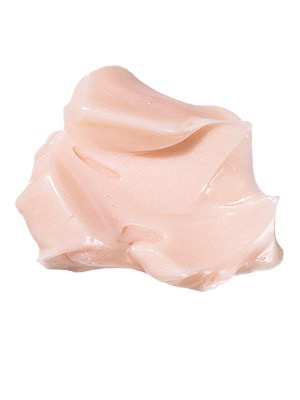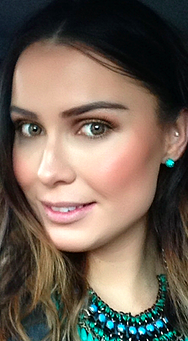For me instagramming is a way of connecting with people as passionate about skin health as I am. Helping people make informed decisions when buying skincare is part of what ASkinSolutions is all about.
Recently I collaborated with the @skincareblogger, a self described ‘skincare enthusiast who loves everything to do with skincare’ ,and who is dedicated to trialing and reviewing skincare for her valued readers.
@skincareblogger has been testing a number of products containing Retinol or Vit A deriviatives. In this Q and A collaboration I help her readers to learn the basics when introducing Retinol and Retinoids in their skincare .
-
What is retinol?
Retinol is the whole molecule of Vit A .It is used as a cosmetic ingredient in skin care. It functions as an antioxidant and as a cell communicator within the skin, accelerating cell renewal and collagen synthesis.
-
Is it safe on all skin types?
Retinols are safe to use on most skin types including sensitve skins, however those suffering from skin conditions such as eczema and atopic dermatitis would be best to avoid Vit A derivatives as it might worsen these conditions.
Not all skin types can tolerate retinols so by introducing retinol slowly will help prevent acute reactions.
Retinol use is a ‘marathon not a sprint’ and best results will be seen after a period of 8-10 weeks . Begin by introducing your retinol product every 3rd night over 3 weeks till your are able to use it nightly with little or no irritation.
Pregnant or lactating women should avoid using Vit A.
It’s also important to consider certain antibiotics combined with retinols can induce photosensitivity increasing the risk of sun damage.
-
When is it time to start using retinol?
Whilst Retinol is my ‘go to’ anti-aging ingredient in skincare there are many other skin conditions where retinol is indicated and can benefit from using retinols including acne, rosacea, photoaging, psoriasis, pigmentation and actinic keratosis.
A good skin diagnosis is critical in deciding when and if retinol is the best product to meet your skin care needs.
-
Should retinols come in certain packaging? and do retinols have a lifespan?
Most cosmetics have a shelf life of 1 yr, except for antiaging products, which are less. In order to maintain product efficacy correct packaging is important, that is; a pump which reduces oxidation when exposed to air or metal packaging preventing light degradation. A shelf life of 6-9 mths can be expected.
-
Does retinol come in many forms?
Although retinol and retinoid, are related they are divided into 2 camps.
Retinol is commonly found in skin care, purchased over the counter and at lower concentrations than retinoids. They are listed in skin care as retinol, retinyl palmitate, retinylaldehyde, retinyl acetate, retoniyl linoleate and retinyl proprionate.
It’s stronger and prescription only sibling is retinoic acid (also called tretinoin); other prescription topical retinoids include adapalene (Differin) and tazarotene (Tazorac) Retrieve,Retin-A and Isotrex which are either in a gel or cream.
-
My skin started getting dry using retinol when should I moisturising? Immediately after 30 mins later etc.
Dryness is common side effect when using retinols . Including and combining either a chemical exfoliator (AHA’S in ) in morning or mechanical (scrubs) 2-3 times a week as part of your skin care routine.
After applying retinols wait until it feels absorbed into the skin before layering with a non-active moisturiser – remember a damp skin will accept product more easily!
-
Are skin irritations common? And if so should I continue?
Reactions such as flaking and redness are common and expected when starting out using retinols.These reactions subside as your skin becomes accustomed but if irritation worsens creating discomfort, pain or injury to the epidermis stop using it immediately!
It may be the percentage is too high and or the product itself is creating irritation.
-
How often should I apply retinol?
Ideally retinols should be used nightly as part of your normal skin care routine if you want to achieve optimal results.
-
What does retinol do?
Retinol is both a cell-comminicator and antioxidant.
As an anti-oxidant it ‘mops up’ damage caused by the free radical processes which contribute to aging.
Acting as a cell-communicator retinol signals the cells to increase their rate of turnover which declines with age.In addition it kickstarts the release of collagen plumping the dermis to give the skin a youthful look.
-
What changes can I expect to see with continued use of retinol?
You can expect to see an improvement in fine lines, wrinkles, pigmentation, skin tone and texture…..you can see why this is a great weapon in the anti-aging war!
-
How long does it take to see results?
With daily use results are likely to be seen in as little as 3 weeks with best results seen around 6 months – it’s a commitment!
-
I heard they come in different strengths, how do I know where to start ?
Tricky…..and unfortunately, cosmetic companies are unwilling to disclose what strength of retinol in their product as this forms their ‘secret recipe’ and is what distinguishes them other retinol products on the market. Often consumers are reliant on the sales pitch of the person representing the product.
The help of your skin therapist/Doctor is your best guide here but generally speaking, introduce slowly, gradually increasing.
-
When is it time to move on to higher strength retinol?
Studies show there is little to be gained from using an increased strength in retinols that may result in an increase in irritation, with little or no benefit to the skin and which may be achieved with a lower strength retinol product.
Moving to higher strength Retinols are not always the answer to your skin care needs and require a script from your Dr if you decide to progress to retinoids.You might find, depending on the particular skin concerns, including other active ingredients may boost and support the job of the retinol….Why not try an exfoliating product in the morning such as an AHA based product and accelerate cell renewal nightly with the retinol .
It’s important to note not to use salicylic acid, sulphur based products or benzoyl peroxide with retinols as they may increase risk of irritation.
Any retinols/retinoids increase photosensitivity so it’s vital to USE SUNSCREEN!
To see more products Sian has reviewed
please follow her on
Instagram @skincareblogger
www.skincareblogger.wix.com






